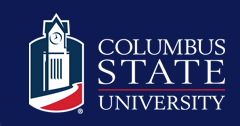Abstract
American schools of education, whose two primary objectives are to prepare highly qualified teachers and to conduct valid and reliable education research, are often decried as “weak institutions” by many in academia and society in general. American schools of education are very often scorned by scholars and academia as intellectually inferior, referred to by teachers in the field as the “ivory tower” and considered to be out of touch and completely unrelated to what really transpires in schools, perceived by political leaders at all levels to be a primary contributing factor to the substandard state of contemporary public education. These are the observations and assertions of David Labaree, a professor in the school of education at Stanford University, who in The Trouble with Ed Schools employs critical sociological and historical analyses to analyze and examine the factors that have directly contributed to the lowly status of education schools in general, and the contemporary assumptions and perceptions that perpetuate this lowly status. If we as educators (and a society for that matter) are to achieve excellence in education we must be willing to engage in critical self reflection and analysis about the means by which we prepare teachers and engage in educational research and policy making. The Trouble with Ed Schools serves well as an impetus for such reflection and analysis.
This is an original work
1
This work has not been previously published
1
IRB approval verification
N/A
Recommended Citation
Finney, J. M. (2006). The Trouble with Ed Schools: A Book Review. Perspectives In Learning, 7 (1). Retrieved from https://csuepress.columbusstate.edu/pil/vol7/iss1/15
Included in
Curriculum and Instruction Commons, Online and Distance Education Commons, Scholarship of Teaching and Learning Commons, Teacher Education and Professional Development Commons

